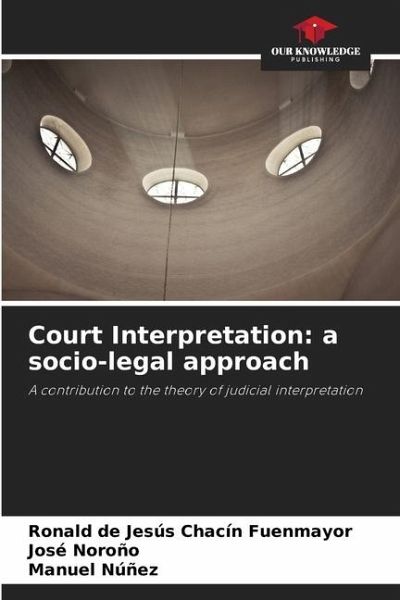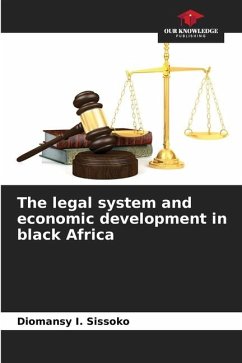
Court Interpretation: a socio-legal approach
A contribution to the theory of judicial interpretation
Versandkostenfrei!
Versandfertig in 6-10 Tagen
27,99 €
inkl. MwSt.

PAYBACK Punkte
14 °P sammeln!
Judicial interpretation is the process of applying the law, the concretisation of the general rule, of the whole legal system, to the concrete case, it is the fundamental activity of judicial activity, a category which has been theorised about for several centuries, with the proposals of the mid-20th century being of great influence and validity up to the present day, constituted by the contributions of prominent Latin American, European and North American jus-philosophers, mainly. The book deals with this subject, developing its notions from the following aspects: the importance of the judge'...
Judicial interpretation is the process of applying the law, the concretisation of the general rule, of the whole legal system, to the concrete case, it is the fundamental activity of judicial activity, a category which has been theorised about for several centuries, with the proposals of the mid-20th century being of great influence and validity up to the present day, constituted by the contributions of prominent Latin American, European and North American jus-philosophers, mainly. The book deals with this subject, developing its notions from the following aspects: the importance of the judge's valuative activity from the personal point of view and also those found in its context, consisting of an interpretation based on an ontological conception of Law that is complex, holistic, three-dimensional, overcoming the legalist proposal from the Kelsenian epistemic position. Law is norm plus jurisprudence, social fact and value, even politics, when constitutional interpretation is analysed above all, and this is what this work shows, as well as the impact it has on judicial interpretation.














